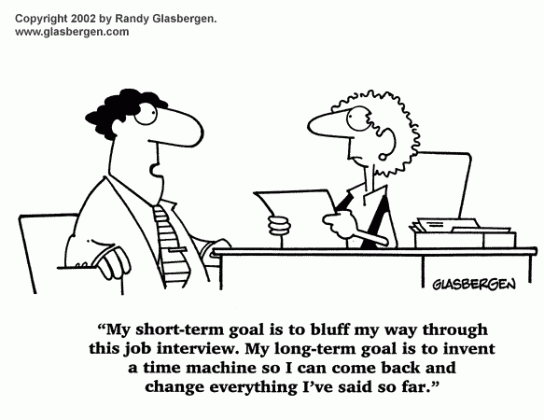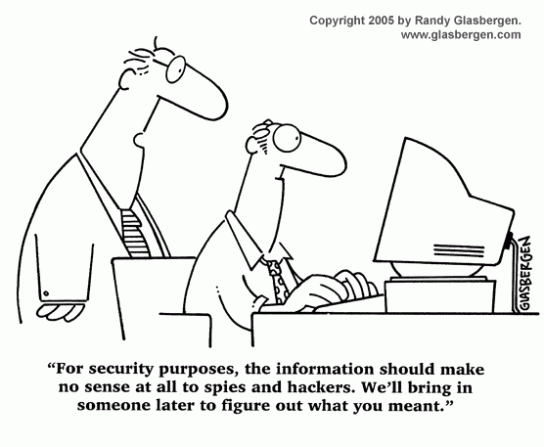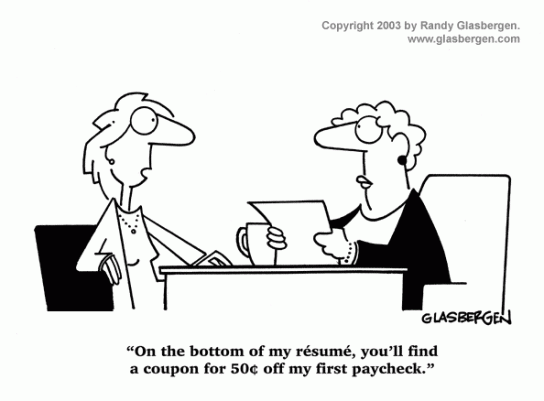
I get a lot of requests to work with clients on their interview skills. They want to know the "secret" formula to performing well at them, and they are pretty sure, because they heard it from someone somewhere, that it rests on how well you present your credentials and on how savvy a negotiator you are. So they put a lot of effort into preparing factual responses and reading up on negotiating skills.
It makes sense that they think this because, well, that is pretty much what every HR and corporate hiring guru says: Have these credentials and impress us with your "brand". Be prepared for every possible question we might throw your way.
The truth is, though, that when you really dissect what makes for the best interview, it comes down to how well all the people in the room, not just you, the candidate, interact. In other words, the people part is really what makes or breaks the deal even if no one involved with the process likes to admit it.
I've witnessed "no" turn to "yes" more times than I can count simply because of the personal side of interviewing. In the same token, I've witnessed perfectly credentialed candidates with well-prepared responses to every question and scenario be passed over without hesitation.
So it is clearly not just a question of credentials.
Now, some might argue, "Of course not. Cultural fit matters too. Candidates have to appear highly personable so they will seem like a good fit" (to which all the introverts on the planet collectively groan).
Although cultural fit is an issue of importance for both the hiring group and the candidate, it's not really it either.
The truth is you are having a discussion with either one other person or a group of other people and there are a lot of personal things going on, some of which may or may not have anything to do with you. For instance, depending on what time of day your interview is, the interviewer may be having one heck of a bad day (or a good one) or home life issues could be at play for both you and them. In other words, attitudes and distractions and feelings are all invisibly in the mix whenever we have any discussion, much less a job interview.
The ones I've seen do best in interviews are the ones who understand this human element, and they use it to build a connection and launch point for a valuable discussion. Sure, they still present their credentials and their "brand."
Sure, they still prepare logical responses to situational-type questions. Sure, they still discuss their "first 30-day initiatives." The difference is that they do it after getting a good pulse of attitudes and the type of day it is, using it to make a human connection, and bringing that into finding out what the real interests of the other party are.
Here are some tips on doing that:
- Show your interest in them as people, not as a means to an end. People sense desperation and when they are being used. Authenticity is hard to fake, and a good interviewer knows that. This is where a lot of perfectly credentialed people fall flat, handing the job over to someone less qualified.
- Find a common enemy. Believe it or not, but common enemies are much more powerful connectors than shared interests. Maybe you both groan over the cold weather or the terrible traffic or the constant runny nose your kids have. Whatever it is, establishing a common enemy is a great way to "bond" quickly.
- Talk benefits, not features. This approach is common in sales, but it applies in the interview (as well as many other scenarios). We have a tendency to list off all of our wonderful features as though they alone are benefits, but that is not necessarily true. OK, so you went to Harvard. Exactly how will that benefit the company, though? You can either say, "I went to Harvard" or you can say, "I will leverage my alumni connections at Harvard to build a strong team here." The latter focuses on how your attending Harvard benefits the company. THAT is differentiation because someone else went to Harvard too, but they can't explain how that does a darn thing for the company except that it can say it has hired someone from Harvard.
--About Stephen----
Stephen Van Vreede is not your average IT/technical résumé writer. He provides career strategy and concierge job search solutions for senior (15+ years) (ITtechExec) and up-and-coming (NoddlePlace) (5-15 years) tech and technical operations leaders. Stephen and his team focus on building simplified, targeted, and certain career move campaigns, be it an external search or an internal promotion. He is co-author of UNcommon with career development leader Brian Tracy (check out his exclusive offer). Contact Stephen directly at Stephen@ittechexec.com or send him an invite at https://www.linkedin.com/in/stephenvanvreede. To see whether Stephen and his team are a good fit for you, take their free (and anonymous) 1-minute compatibility quiz, Is the ITtechExec Approach a Good Match for You?


